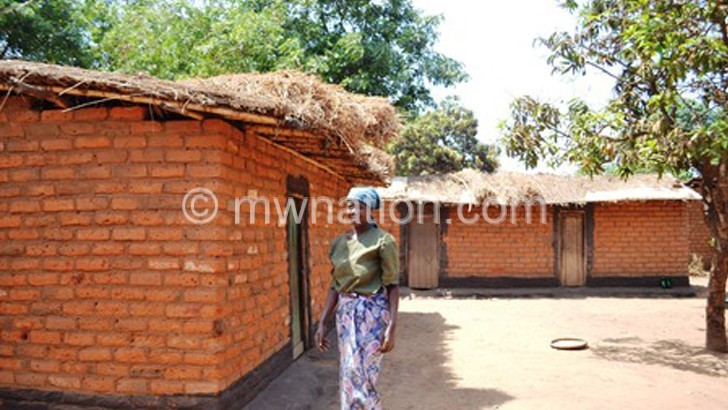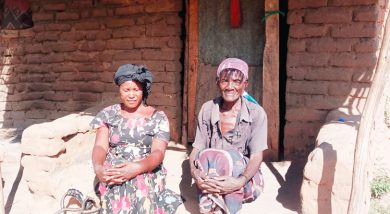When Mercy Phiri (not real name) moved to a rented house located close to her school, little did she know life as a self boarding student would be tough.
Says Mercy: “As I was renting the house, it got to a point where the support I was getting from my parents was not enough. Sometimes I could go to school without breakfast because I had nothing.”
It did not take long for Mercy to succumb to peer pressure.
“I found myself a boyfriend who was a tailor at the trading centre. He would take care of some of my financial needs but in the end, I got pregnant, she says.

Mercy, whose baby was born on October 1, says she regrets her situation and would return to school if given a second chance. She was in Form Two when she got pregnant.
Her mother says while she was aware that as parents, they could hardly meet their daughter’s school needs, there was little they could do.
“We are also strained of finances, so Mercy had to be satisfied with what was provided for her by us.
“Our intention was to have this child close to the school because we live too far from the school. As parents we are not happy that she got pregnant. We will encourage her to go back to school soon,” said the mother.
But Mercy is not the only self-boarding student at Sopa Community Day Secondary School (CDSS) in Mchinji to fall into the trap of unplanned pregnancies.

The school has registered 111 pregnancies in the past three years alone, a development which has highly contributed towards high dropout rate of girls from the school.
Most of the girls who fell pregnant, according to the school’s head teacher Jonathan Magombo, are in self-boarding as they tried to avoid commuting an average 25 kilometres between the school and their respective homes.
Magombo says the learners’ behaviour after school hours is beyond the school’s control.
“The school management assumes that during that time, the learners are in the hands of their guardians or parents, because our CDSS does not offer boarding facilities,” he says..
As a result of this situation, the school has been registering high pregnancy rates.
According to Magombo, in the 2012-2013 academic year, 49 girls got pregnant and dropped out of school, while in the following year the school registered 35 pregnancies. In the 2014-2015 academic year, the number went down to 27 pregnancies.
“This academic year, which started just a few weeks ago, we already have two pregnancies,” says the head teacher.
He notes that most girls in self-boarding are vulnerable because they come from poor families that live far from the school.
“Businessmen who come for the Monday market day at Mikundi Trading Centre, where the school is located, entice them with money in exchange for sex,” says Magombo.
Currently, Sopa CDSS has 334 full time students and 350 learners who are on open distance learning (ODL) programme.
Executive director for Civil Society Education Coalition (CSEC), Benedicto Kondowe, says he is not surprised by the Sopa scenario.
“The status quo in CDSSs defeats the original design of the schools as to what community they were supposed to cater for. There is need for government to be realistic and prioritise the issues of retaining the girls in school, says Kondowe.
According to him, the model of CDSS was that it must carter for learners coming from within a community where the school is located.
“But the reality is that CDSSs are serving learners from a radius of as much as 30km as evidenced by the Sopa CDSS issue. I think it is high time we revise the model of CDSS and there is also need to start providing boarding facilities in schools that have learners from a wider catchment area,” he explains.
Principal Secretary in the Ministry of Gender, Children and Social Welfare, Mary Shawa, says the situation is unfortunate because it puts the future of the girls at risk.
She, however, says government has increased its attention towards girls’ education by abolishing self-boarding facilities.
Says Shawa: “The nature of CDSSs is that students that are selected to such schools should come from within a walking distance of the school but it seems many students are having to walk longer distances. As you may be aware government has just announced that there should no longer be self-boarding facilities. Furthermore, government is building more girls’ hostels in CDSSs.”
Beautify Malawi Trust (Beam), an organisation whose matron is the First Lady Gertrude Mutharika, is supporting government in implementing a project to build girls hostels in schools.
Beam chairperson, Mayamiko Mwinjiro, says the Trust has already sourced funds to build a hostel that will accommodate at least 100 girls.
“The project is going to be supervised by the Parents-Teacher Association (PTA) to give the community ownership of the project for its sustainability.
“The hostel will have two wings and it has been valued at K30 million, the funds of which have already been mobilized. There is also a similar project at Chisenga CDSS in Chitipa, where we identified the need,” said Mwinjiro.





